Bits and Bobs
The golden age, trust, from Wilson to Trump, and Canadian history
Checking in on the golden age
“From this day forward,” Donald Trump declared at his second inauguration, “our country will flourish and be respected again all over the world.” One might have quibbled with that statement. The United States has had the largest economy in the world since the late 19th century. It has been far richer than any other country, by any reasonable measure, for the past century. And the gap between its per capita wealth and that of its nearest competitor has actually grown over the past thirty years. But the president is a man of vision who cannot be distracted by such details.
Hence he declared America had entered nothing less than a new “golden age.”
That was not even three months ago but Donald Trump has, indeed, changed America and the world. Which is no small accomplishment.
Here are several charts that need no commentary.
How times have changed
It’s hard to imagine two people more different than Donald Trump and Woodrow Wilson.
No need for me to discuss President 45/47. We’re all too familiar with him.
But you may not know that the only American president to earn a PhD was Woodrow Wilson, who studied history and politics at what was later named Princeton University. Wilson then became a professor at Bryn Mawr, Wesleyan, and finally Princeton. His academic work was outstanding and his reputation grew until, in 1902, he was named Princeton’s president.
Wilson was — as Trump would undoubtedly put it — straight from central casting. Dour and serious, a rigid moralist with pince-nez and starched shirts and a perpetual expression of faint disapproval, Wilson saw education not merely as schooling the ignorant but a crusade to uplift the spirit, improve the character, and build civilization.
When he became president in 1913, he brought the same stiff righteousness to the White House. So when he intervened economically and militarily in the domestic politics of Mexico, Nicaragua, Venezuela, and other Latin American countries, he downplayed self-interest. He would sweep away Latin American habits of corruption and replace them with proper “Anglo-Saxon” models of government.
Cartoonists relished his professorial character.
This one was published in 1914:
Yes, it’s arrogant and racist. (Wilson was both.) But in its own way, and for its time, this vignette is high-minded: The professorial president is bringing civilization to the benighted brown people — and civilization means the greedy and ambitious are not permitted to exercise the power of government for their own selfish ends.
I think I can be forgiven for connecting this 111-year-old cartoon with the present.
If Donald Trump’s political career had a mission statement, it would be something along the lines of “seize the power of government to advance personal interests and ambition.” Trump is for Trump. Always has been. Always will be. Aside from those who think Trump was anointed by Jesus, we all know this. That is why, this week, when stock markets plunged and soared in response to Trump’s every spoken word, there was rampant speculation about how Trump and his cronies were profiting from the swings. And imagine all those countries and companies lining up to beg the boss for exemptions from tariffs? Ca-ching!
Please note, I’m not citing the speculation as proof of crime. I’m citing it as proof of reputation.
We all know that’s how the man rolls. We don’t know if he and his cronies profited from the turmoil last week, but we do know, for a certainty, that it would be in character for him to do so.
This is a man who — as a presidential candidate! — hawked Trump Bibles (printed in China) and partnered with a shady company to peddle gold Trump shoes. He launched a crypto meme coin — $TRUMP — so sleazy that lots of people in the notoriously scammy world of crypto worried it would further tarnish the reputation of crypto. Melania Trump pocketed $40 million from Amazon to produce a documentary about the life of the absentee First Lady; said pocketing occurred at precisely the same time Jeff Bezos was working hard to get back in the good graces of the returning president.
I could go on but there’s no point. We all know this. Trump has fused the office and his interests. And it goes beyond money. This week, Trump ordered an investigation into the former official who monitored the security of the 2020 election and had the temerity to say the election had been free and fair. The mission of the US federal justice system is increasingly to deliver vengeance against those who displease the boss.
I’ve often made the point that in 1977, under Republican pressure, Jimmy Carter was compelled to put his peanut farm into a blind trust to avoid even the appearance of conflicts of interest when the president made peanut-related decisions. Compare then and now. From Jimmy Carter to Donald Trump is quite a plunge.
But take a look at that cartoon again — and imagine the distance between a high-minded university professor and Princeton president to a huckster who created a scam university to rip off gullible students.
That is how far the American presidency has fallen.
In trust we trust
A while back, I mentioned I was writing a book with Jimmy Wales, the founder of Wikipedia. I’m pleased to report it’s done. The Seven Rules of Trust will be released in late October but it’s available now for pre-order.
It’s hard to overstate the importance of trust.
Alone, we humans are an unimpressive animal. But cooperating in groups, we can kill lions, build pyramids, found civilizations, develop cultures, invent science, and measure the universe.
What does cooperation require? Trust. Everything we value depends on it. And in too many places, in too many ways, trust is crumbling.
So how do people create trust? How do they maintain it and strengthen it? How do they lose trust? These are basic but urgent questions. And the story of Wikipedia — which went from a ridiculous idea that couldn’t possibly work to a globally trusted source of information about pretty much everything — is an ideal way to explore it. Other websites that bring strangers together have turned into hellscapes of cynicism, anger, and hate. How did Wikipedia get strangers to write by far the biggest encyclopedia in history? And how did Wikipedia ensure that work was sufficiently accurate to earn the trust of readers? Wikipedia was astonishing when it first started rolling. But today? Look at the state of the world. Look at the state of the Internet. Wikipedia is downright miraculous.
But no divine intervention was involved. It only took sensible, practical steps. And an appreciation that the whole project would stand or fall on trust.
I’ll have lots — LOTS! — more to say on trust, social capital, democracy, and the fate of civilization come next fall.
Mandatory sales pitch
As I mentioned yesterday, writing PastPresentFuture has only ever been my hobby since I launched it in 2022. But I’m now making this my full-time work, in part by using this newsletter as a platform to explore some of the subjects and themes in my next book, which will be a social history of technology.
Unfortunately, that means I have to actually concern myself with the grubby matter of money. I can no longer make everything free for everyone, which means I’ll have to put up paywalls now and then. I’ll try to keep it to a minimum. And I’ll have to make sales pitches saying, “please support my work by becoming a paid subscriber. My adorable children thank you. My adorable dog thanks you.”
I know. It’s annoying. But I didn’t make the world, I only live in it.
So please support my work by becoming a paid subscriber. My adorable children thank you. My adorable dog thanks you.
And buy some books while you’re at it
Mark Bourrie has a new book out.
The Canadians among you will know that Bourrie is a Canadian author with eclectic interests. His latest is entitled Ripper: The Making of Pierre Poilievre. So, yes, it’s political. I swore off commenting on domestic partisan politics many years ago, so I haven’t read it and won’t say another word about it. But I do want to say something about Mark and other Canadian writers like him. (I’m in a different category as I am — despite being so Canadian I recently injured myself playing hockey — essentially a rootless cosmopolitan who writes for an international audience.)
Mark and others don’t do it for money. There’s no money in writing Canadian books for Canadians. For researched non-fiction of the sort Mark writes, there isn’t even the intravenous drip of government grants to keep an impecunious writer barely fed.
One could argue that doesn’t matter, I suppose. At least not for books about, say, political figures in the news. But where it indisputably does matter is in the story of Canada itself.
“It is useful to remember,” wrote American historian Arthur Schlesinger, “that history is to the nation as memory is to the individual. As a person deprived of memory becomes disorientated and lost, not knowing where they have been or where they are going, so a nation denied a conception of the past will be disabled in dealing with its present and its future.”
That says it all. And for a country as fractious as Canada, with a shared national identity as “thin” as Canada’s — to use sociologists’ term — it could be the epitaph on our collective tombstone.
It wasn’t always this way. Pierre Berton and Peter Newman made a damned good living selling popular histories of Canada. But Canadian publishing is now mostly branch plants of foreign giants that have no time for such eccentric little subjects. And the whole ecosystem that supported Canadian popular history has either shrivelled (newspapers and magazines) or vanished altogether (book reviews sections in newspapers and magazines).
And Canada’s political class hasn’t even noticed.
Many Canadian institutions reward and promote Canadian fiction and memoir. Close to none lift a finger for popular history. The CBC’s raison d’être is “Canadians telling Canadian stories,” and it still makes an effort for fiction and memoir, but the idea of sharing national history, like the ambitious series Canada: A People’s History, was junked long ago. Today, the CBC is just another amnesiac wandering the Canadian landscape, confused about who it is, where it came from, and why it’s there.
And yet, miraculously, some popular Canadian history continues to be published. Charlotte Gray. Tim Cook. Thomas King. Feel free to add names in the comments below.
I’ll add “Mark Bourrie.”
Mark has an amazing list of titles to his credit, many about Canadian history. One of them, Bushrunner: The Adventures of Pierre-Esprit Radisson, beat all odds to win prizes and become a major bestseller. It’s a rip-roaring tale of wild adventure. If it were American history, it would long ago have been turned into a Hollywood movie starring the heartthrob of the day. But it’s Canadian history. So it remained in the archives, ignored, until Mark dug it up.
But writing Canadian books isn’t Mark’s day job. It can’t be. Even with the most modest of expectations, it’s impossible to make a living that way. Mark writes as a sideline. Because he loves writing, because he loves the stories he writes about, a because he thinks its important for the country. He’s also able to do it because he is superhumanly energetic, with “superhuman” defined here as “so much more than I am.”
If it weren’t for Mark and a small number of others willing to make sacrifices, popular Canadian history would have vanished entirely from book stores. And Canadian memory would have faded all the more.
This country spends a great deal of money on culture. And national identity. In fact, Mark Carney’s Liberals promised to boost funding of the CBC by $150 million because, as Carney said, facing an existential threat from the south, “protecting Canada’s identity is part of securing Canada.”
I don’t want to get political, but I agree. But what does “protecting Canada’s identity” mean? That’s what the political class seems to have no interest in discussing. Instead, without serious consideration, they pour money into existing institutions and systems, and simply assume a strong national identity will somehow emerge.
Here’s Schlesinger again: “As a person deprived of memory becomes disorientated and lost, not knowing where they have been or where they are going, so a nation denied a conception of the past will be disabled in dealing with its present and its future.” Is the CBC doing anything about that? No. Categorically no. And if it were, is that the best way to restore national memory? That $150 million represents a modest boost in funding for a national television network spread too thin with too little sense of vision and purpose. Put that same money toward the writing of popular Canadian history and it would be a mountain of money. It could change everything.
But maybe I’m wrong. These are just my top-of-mind thoughts. Still, shouldn’t we have this discussion? If we agree that national identity is critical, and history is essential to the formation of identity, isn’t this at least worth a discussion in a time when our nation’s very existence is at stake?
I think so. And while you’re waiting for that discussion, go buy one of Mark’s books, or any other Canadian history, knowing that you’re helping to keep the home front strong.



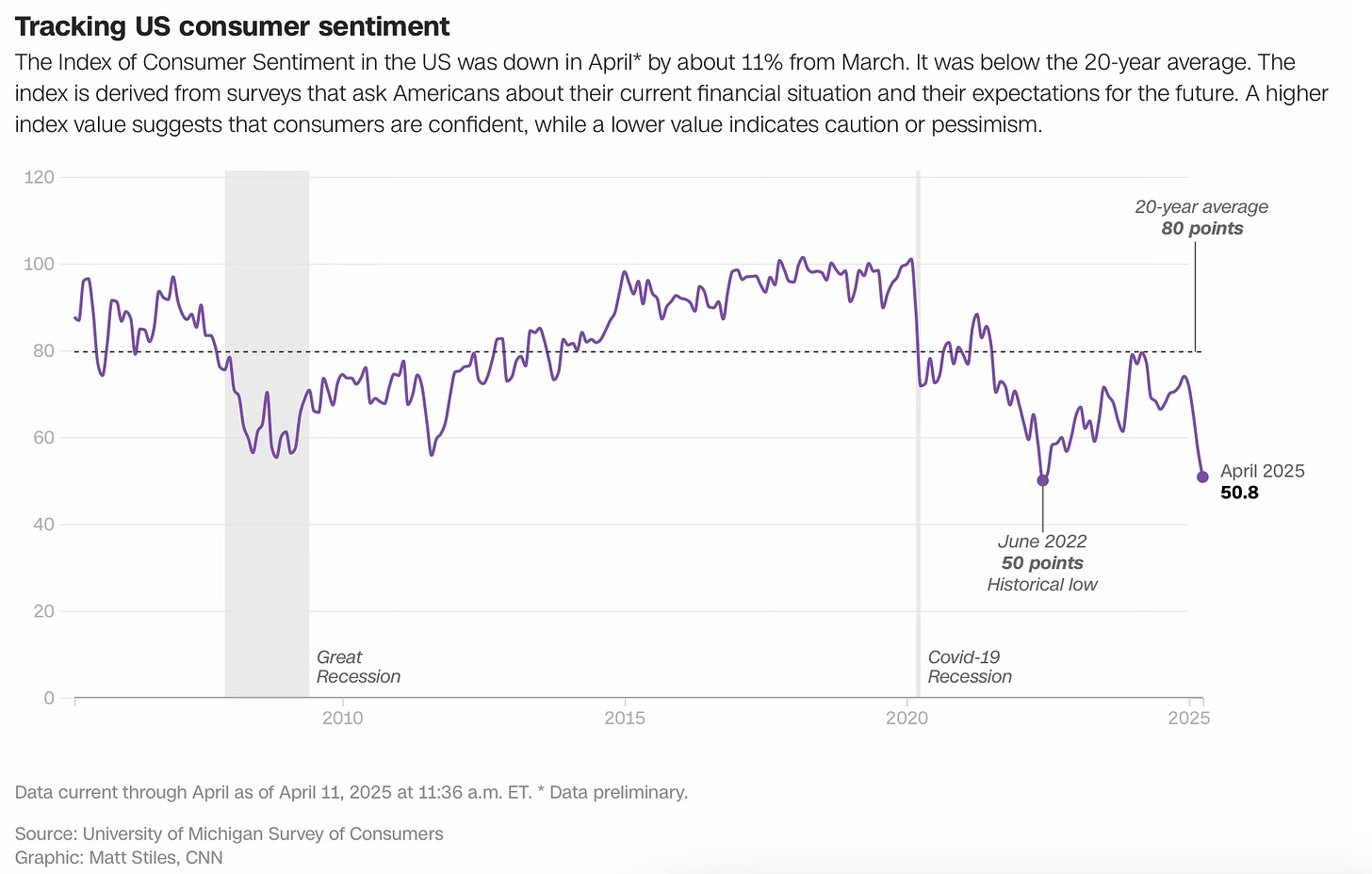

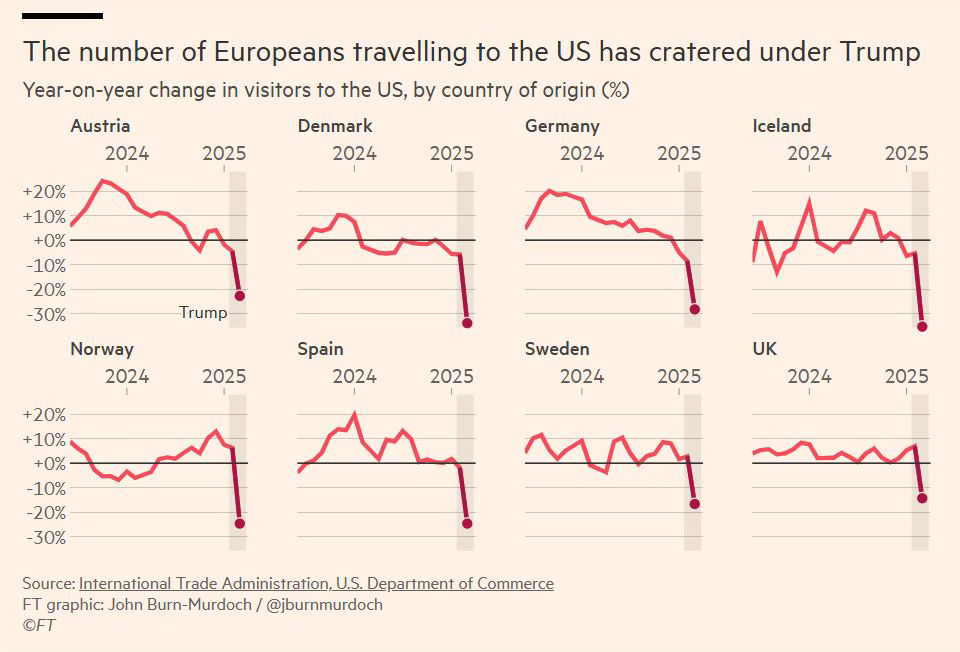
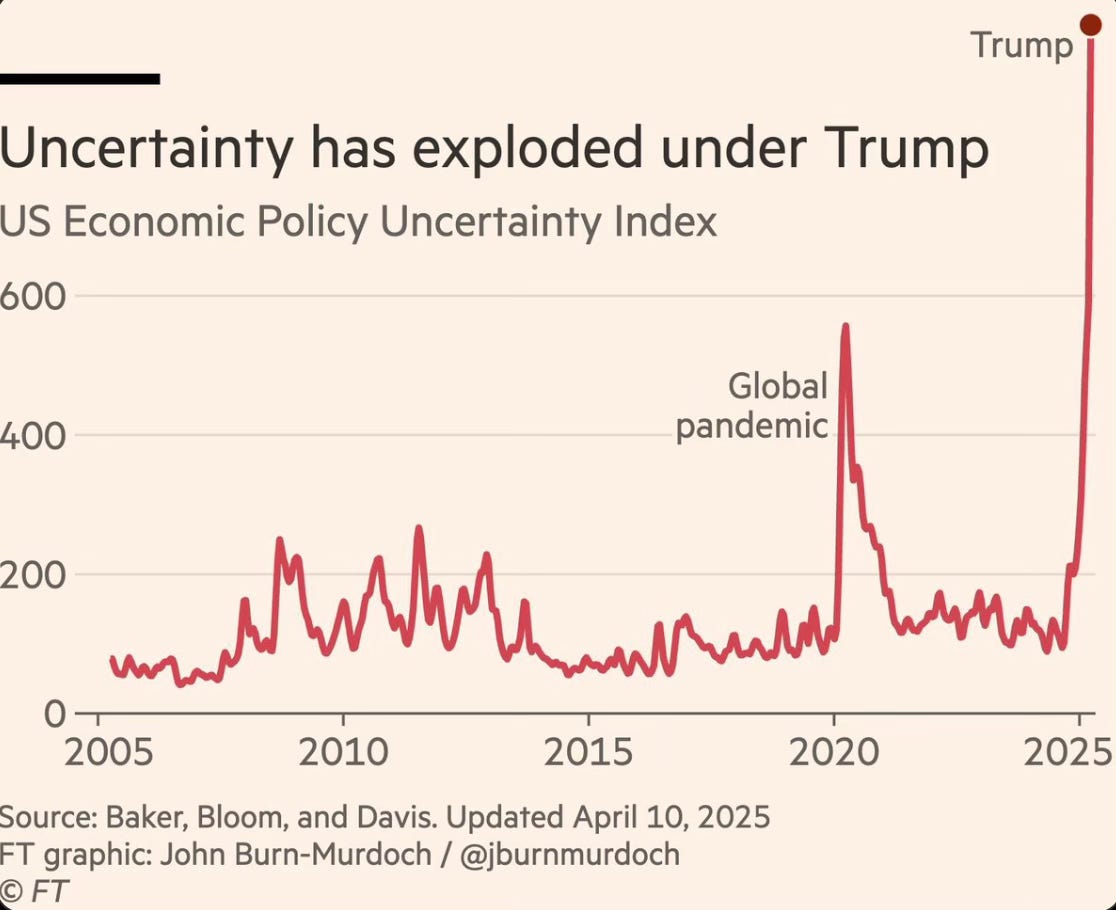
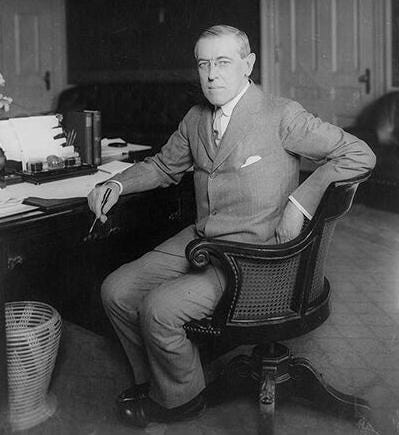
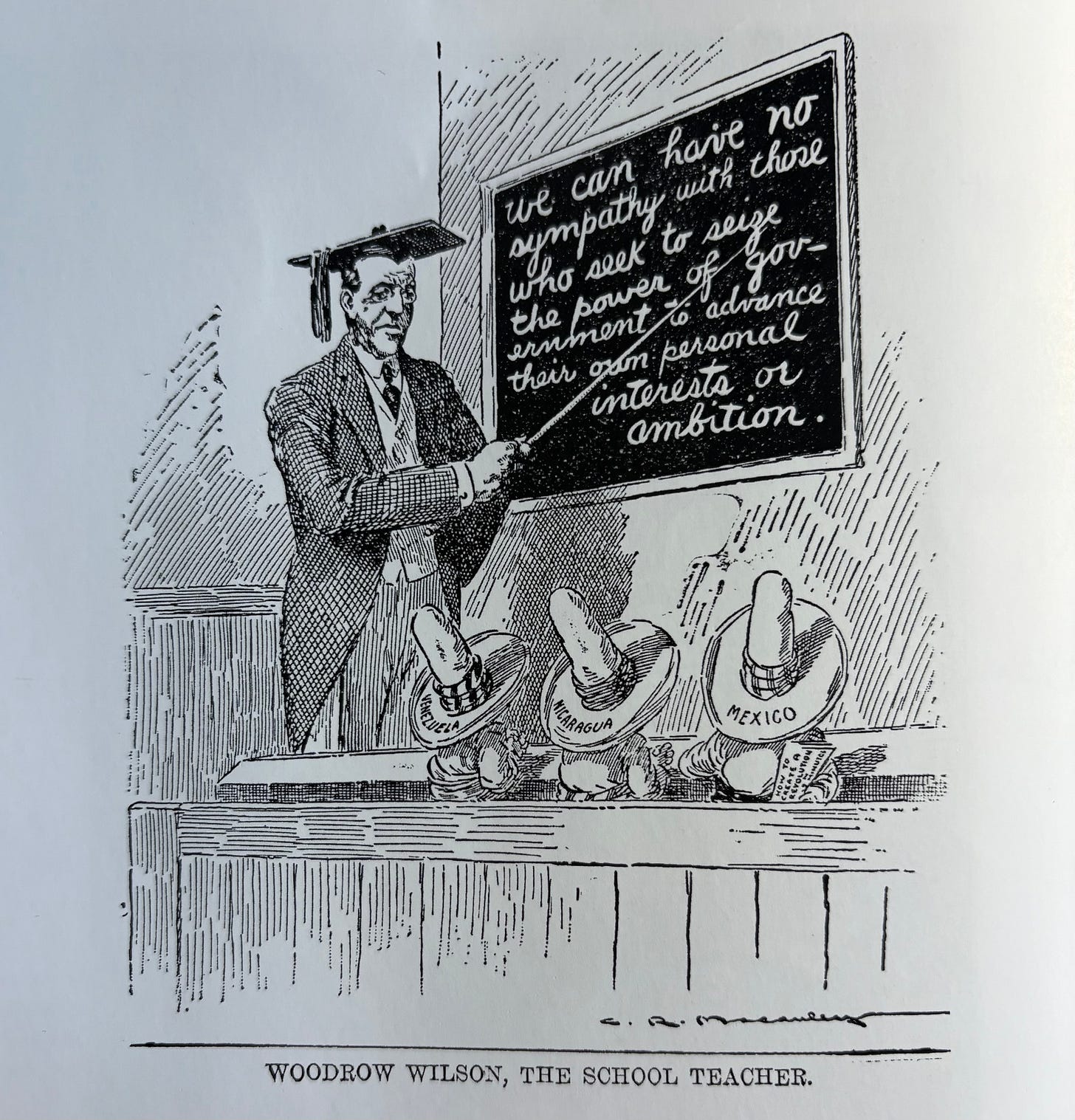

At the moment we are still early in Mr. Trump’s second term. And we have been thrown every other day by some dramatic event, attack, flip flop, etc. Your point that we should look at his history to verify his tendency to use whatever power he has to advance personal interests is important. In addition to looking to Wilson as a counterpoint you can look to other autocrats for a sense of how things change the longer such a person holds power.
When on posting in Indonesia in the late 90s I met a local business person who had a marble quarry. It was during the Asian Economic Crisis and he was doing very well by contrast with the rest of the economy. He used only local inputs for his production and sold abroad for hard currency at a time when the rupiah was plummeting in value. I asked him if he was going to try to expand. He was adamant that this would not be a good thing as if his business grew too much it would attract the attention of Soeharto’s cronies (especially S’s children) and he would lose his company.
And this is the kind of situation which is likely to be duplicated in the United States the longer the current government is in place. People may not lose their companies but over time in order to do business or to gain advantage the only avenue is likely to be through currying favour with Mr. Trump and the people around him.
Congratulations on the book with Jimmy Wales! Well done you two! Just a quick note to readers to consider ordering with an indie bookseller. April 26 is Independent Canadian Booksellers Day. They have a website where you can find the indie in your neighbourhood. (The link in the post defaults to Amazon. Use it to get the publishing information to generate a suggestion to purchase with the local public library too.)